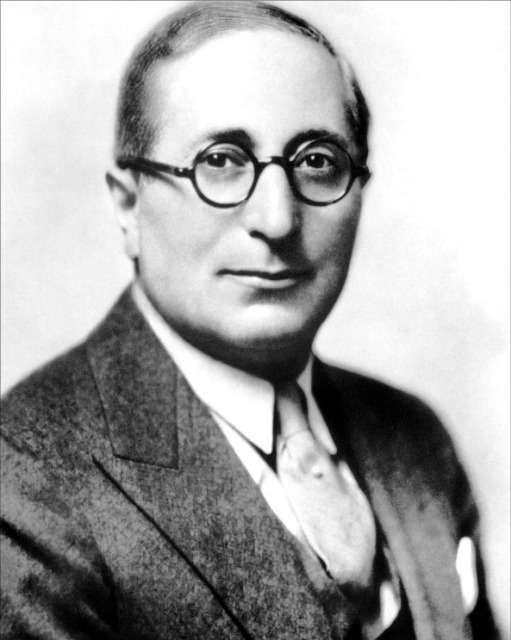Get Today in Masonic History into your Inbox. Sign up today for one of our email lists!
Need an article for your Trestleboard/Newsletter see our Use Policy
Louis Burt Mayer Passes Away

Today in Masonic History Louis Burt Mayer passes away in 1957.
Louis Burt Mayer was an American film producer.
Mayer was born Lazar Meir in Minsk, Russian Empire. The actual date of his birthday is questioned, though most sources have it as July 12, 1884. In 1887, Mayer moved with his family to Rhode Island, then to Saint John, New Brunswick, Canada. In Canada, Mayer's father who had little education and a limited set of skills open a scrap metal business. At the age of 12, Mayer quit school to help the family business. He taught himself manners and social schools, as well as academics.
In 1904, Mayer left St. John and moved to Boston. There he reopened a burlesque house with 600 seats in Haverhill, Massachusetts. He renamed the theatre the Orpheum and it became his first movie theatre. Within a few years he owned all 5 of Haverhill's theaters. Through a partnership he eventually owned the biggest chain of theaters in New England.
In 1917, Mayer moved to Los Angeles, California. There he opened Louis B. Mayer Pictures Corporation. A few years later he merged with another studio making the the Mayer-Schulberg Studio. In 1924, Mayer's big opportunity came when Marcus Loew, who owned the Loew's chain of theaters merged with Mayer's studio. They initially formed Metro-Goldwyn. Mayer was given full control of the theatre and a few years later renamed the theatres Metro-Goldwyn Mayer (MGM), with Loews consent.
MGM thrived under Mayer. In the early days Mayer had met a young and upcoming producer, Irving Thalberg. The two complemented each other in the management of the studio, where Mayer wanted the crowd pleasing movies, Thalberg looked for substance in the projects the studio produced. Mayer saw Thalberg as something of a son. Despite the relationship the two men had, Mayer eventually replaced Thalberg as the production chief of the studio. Shortly after Thalberg passed away from a heart attack. Many felt it spelled the end of the studio. MGM continued to thrive without Thalberg. After his passing Mayer put out historic movies including Gone with the Wind and The Wizard of Oz.
When the war in Europe began, many in Hollywood, including Mayer, were concerned the 40% of a movies revenue coming from Europe were in jeoprady if Nazi censors did not like a film. Despite the fear, Mayer made several films with anti-Nazi and pro-British themes. In 1942, Mayer released the film Mrs. Miniver, a story of a woman keeping her family together and surviving during the London blitz. The film received 7 academy awards, including a best actress Oscar for the star of the film. Even President Roosevelt and Winston Churchill were fans of the film. Churchill sent Mayer a telegram stating the film was propaganda worth 100 battleships.
After the war, MGM began to slide and Mayer struggled in his position as the studio head.
Mayer passed away from Leukemia on October 29th, 1957.
Mayer was a member of St. Cecile Lodge No. 568, in New York City, New York.
This article provided by Brother Eric C. Steele.

